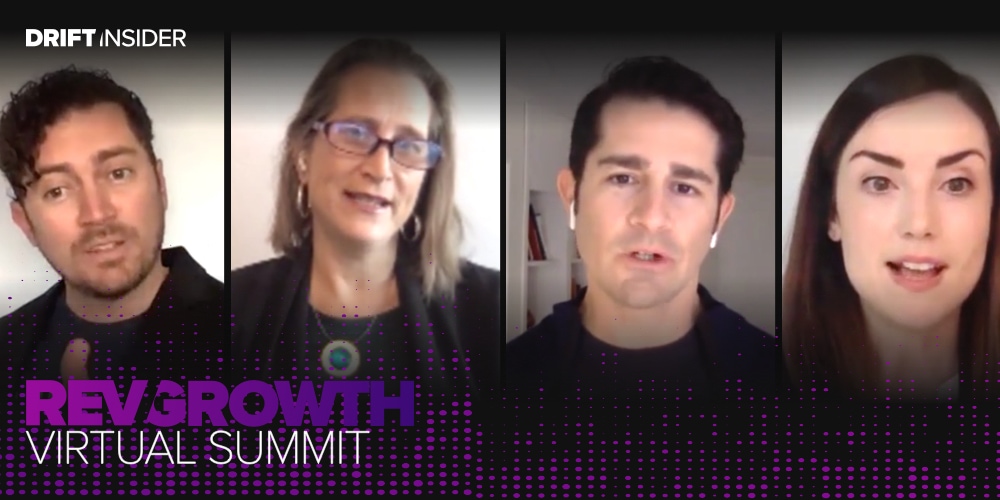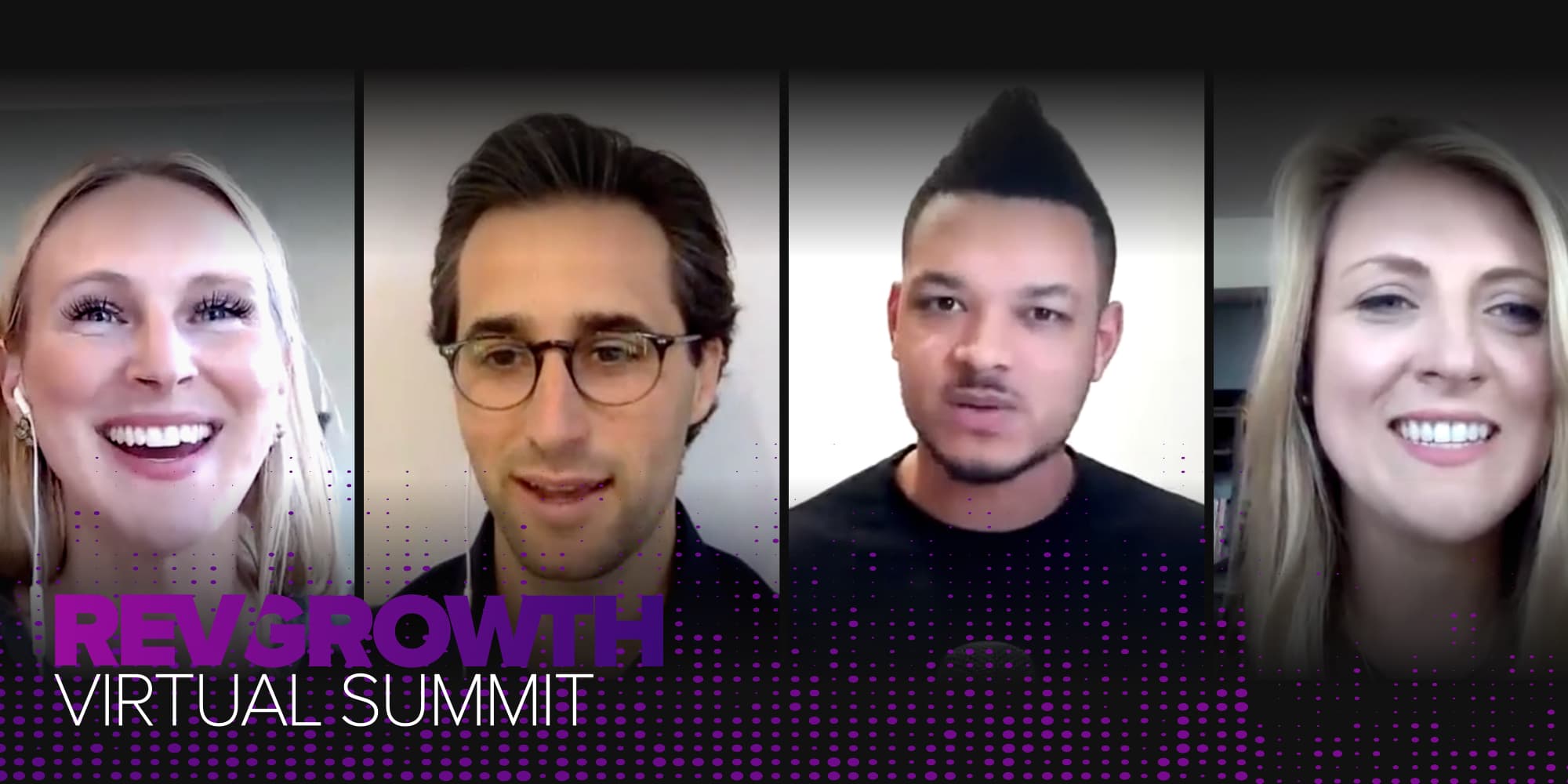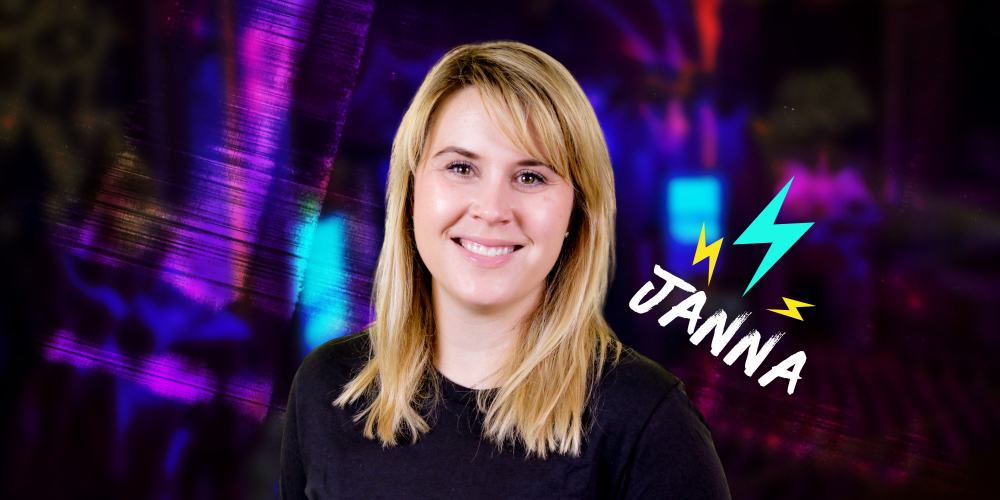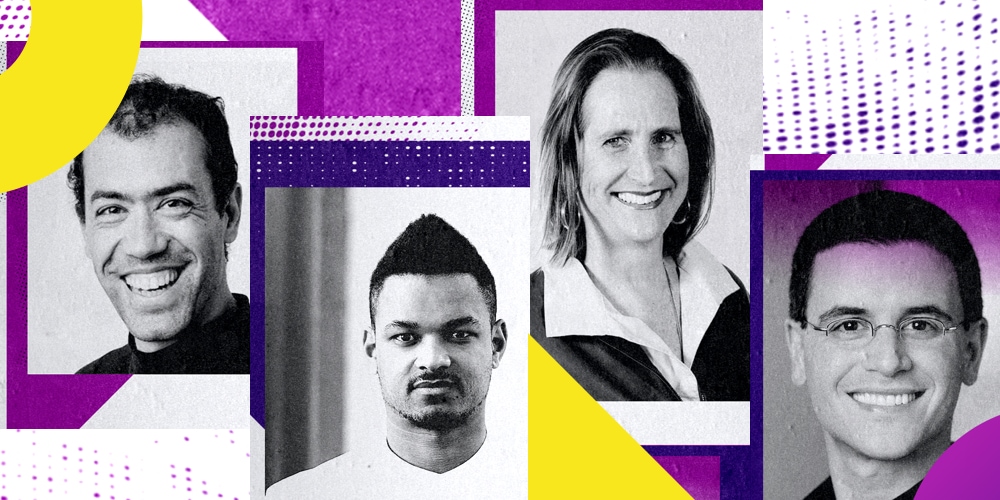
Couldn’t make it to RevGrowth, our two-day virtual learning event? No worries. I’ve rounded up a few of the most important lessons for CMOs (and any marketer, really) right now. OR if you were there, you, like me were likely inundated with information. So I’m curating the best of the best advice in this handy blog post for you ?
You can catch all of the talks from RevGrowth on replay in Drift Insider here. (Pssst this is just the marketing track, but if you’re looking for sales content from RevGrowth, you can find it here).
Alright, let’s go.
1. Build trust through the use of micro-influencers and brand ambassadors.
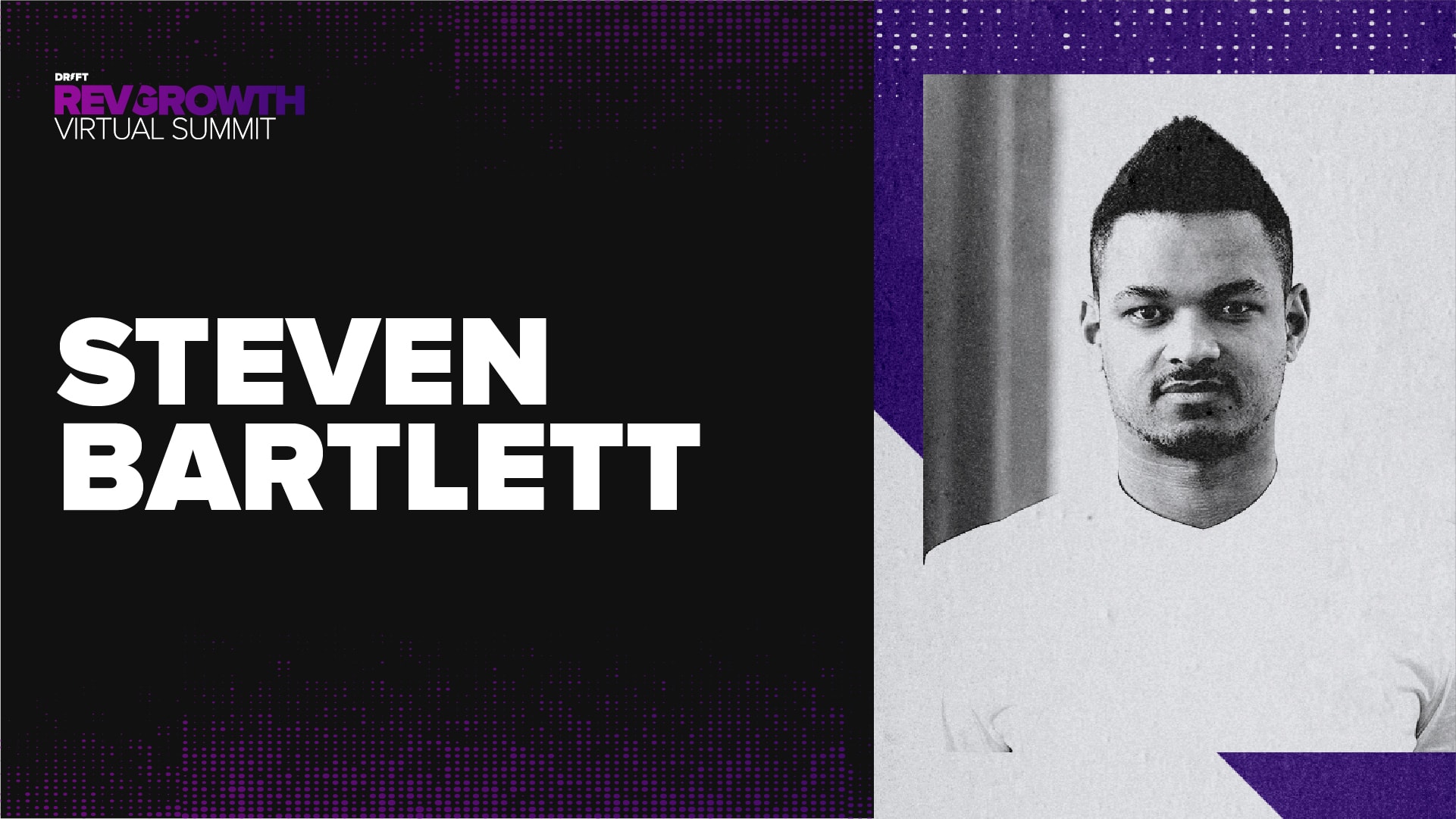
As the CEO and co-founder of Social Chain, Steven Bartlett runs a multi-million dollar business focused on social-first marketing, media and eCommerce. Social Chain counts among its clients companies like Uber and Amazon. So to say Steven and his team know a thing or two about social media marketing would be an understatement.
At RevGrowth, Steven touched on the power of social and, in particular, how it can be used to achieve business and philanthropic goals. But what I found most interesting in Steven’s presentation was his focus on traditional media vs. social media and the disparities in trust each engenders. Take the below for instance:
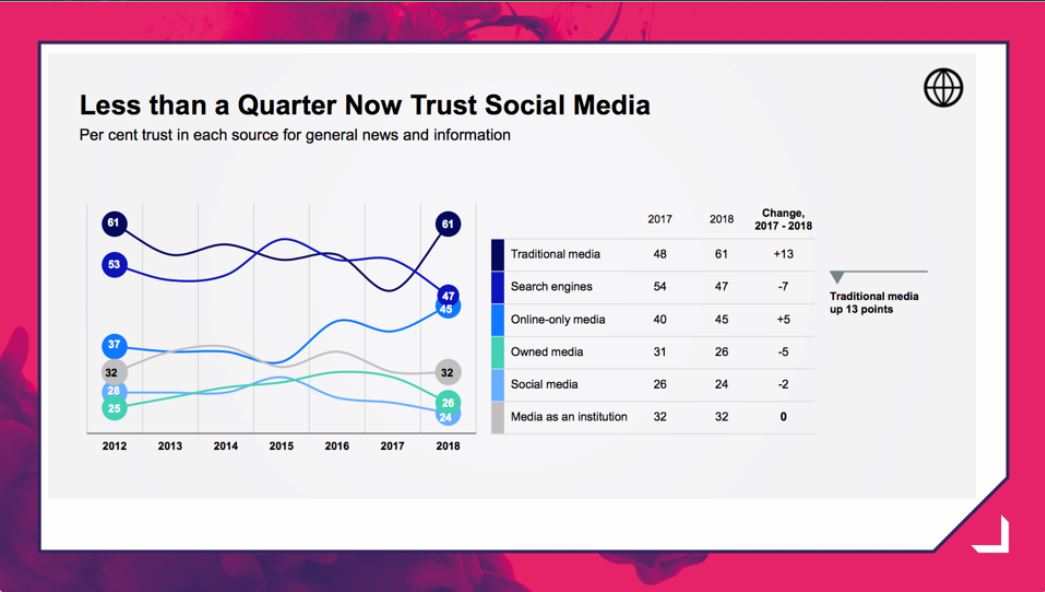
According to Steven and this data, less than a quarter of us trust what we see on the internet. This might feel like a threat, but if you’re a marketer trying to succeed in 2020, here’s the truth, according to Steven: Every time a door closes, another one opens. And every threat brings with it an opportunity.
Steven says that in order to build trust, you need to build a company culture that’s public, transparent and accessible on the right platforms. Influencers are no longer media personalities with huge followings. Influencers today are those who can really build trust. So much of influencer marketing has become static, devoid of emotion. For influencer marketing to succeed in this new era and beyond, Steven says it must come back to the fundamentals. Brand ambassadors, people with fewer than 5,000 followers who aren’t being paid to promote things all the time, that you consider your friends, are currently the most persuasive set of influencers.
You can watch Steven’s full presentation here.
2. In times of uncertainty, appeal to your buyer’s emotional brain.
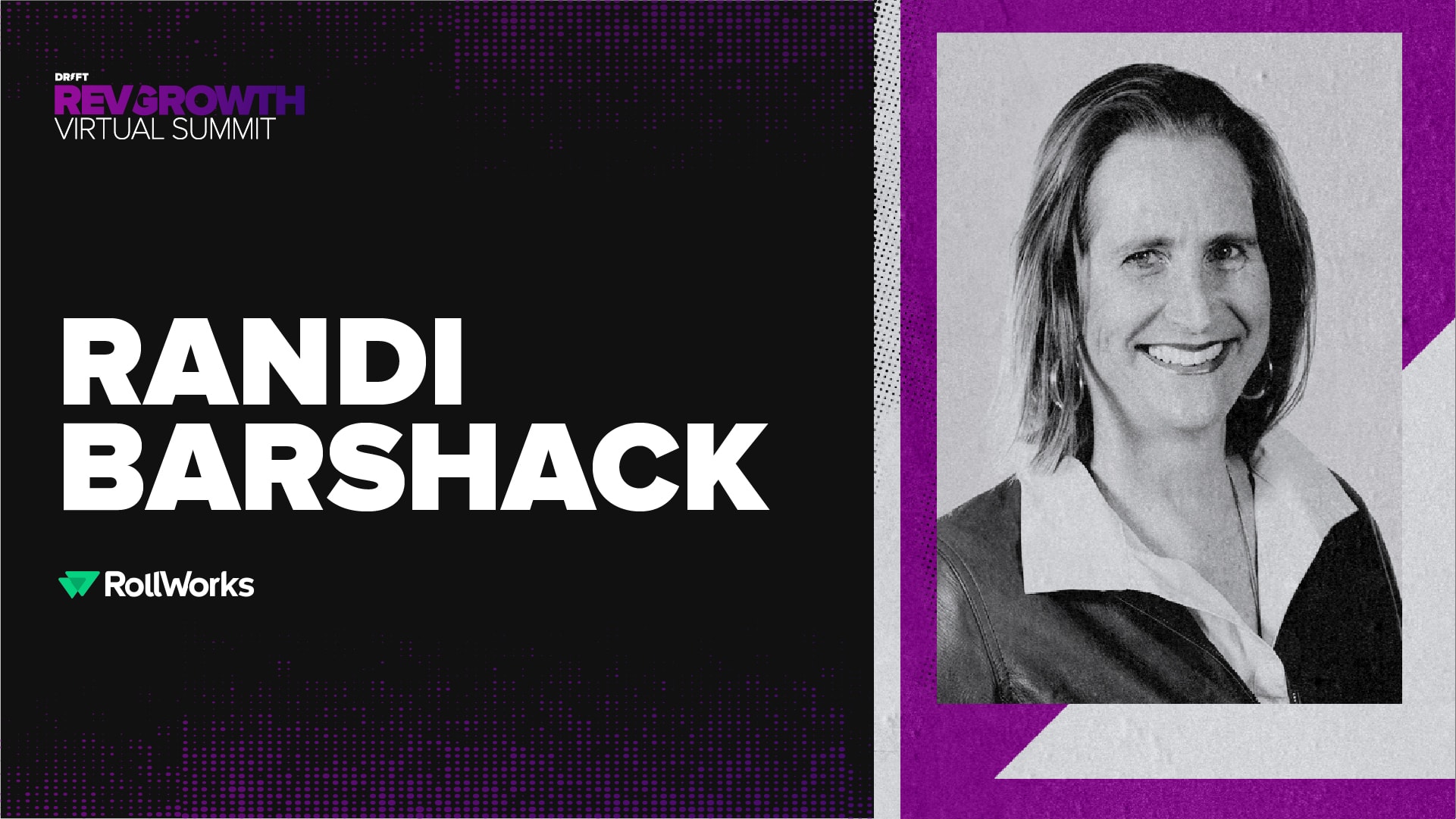
As SVP of Marketing at RollWorks, Randi has a long history of storytelling – first as an exchange student in Japan and later as a documentarian, eventually putting her storytelling experience to work for B2B companies in Silicon Valley.
During RevGrowth, Randi discussed how we use storytelling to sell – especially during times of uncertainty. In particular, Randi pointed out how the conventional story arc – the inciting incident, rising action and climax applies to and has changed amid the coronavirus outbreak.
She asks, through storytelling, what tools can we give our hero (or buyer) to help them overcome obstacles and accomplish their goals?
Today, aspirational stories like Salesforce’s cloud storyline, which promised ‘the end of software’, won’t necessarily work. Instead, we need to appeal to the reptilian or emotional brain.

Because right now we’re all in survival mode – physically and economically. Almost every human on earth is going through some level of change, your buyers included. So as marketers, how do you appeal to this brain through storytelling without taking advantage of the vulnerable state we’re all in?
Randi advises providing helpful advice in the form of eBooks and ad campaigns. Give your buyers information that helps them overcome the challenges they’re facing given the new inciting incident we’re all struggling through.
You can watch Randi’s full presentation here.
3. Marketers are responding to COVID with more website testing and personalization.
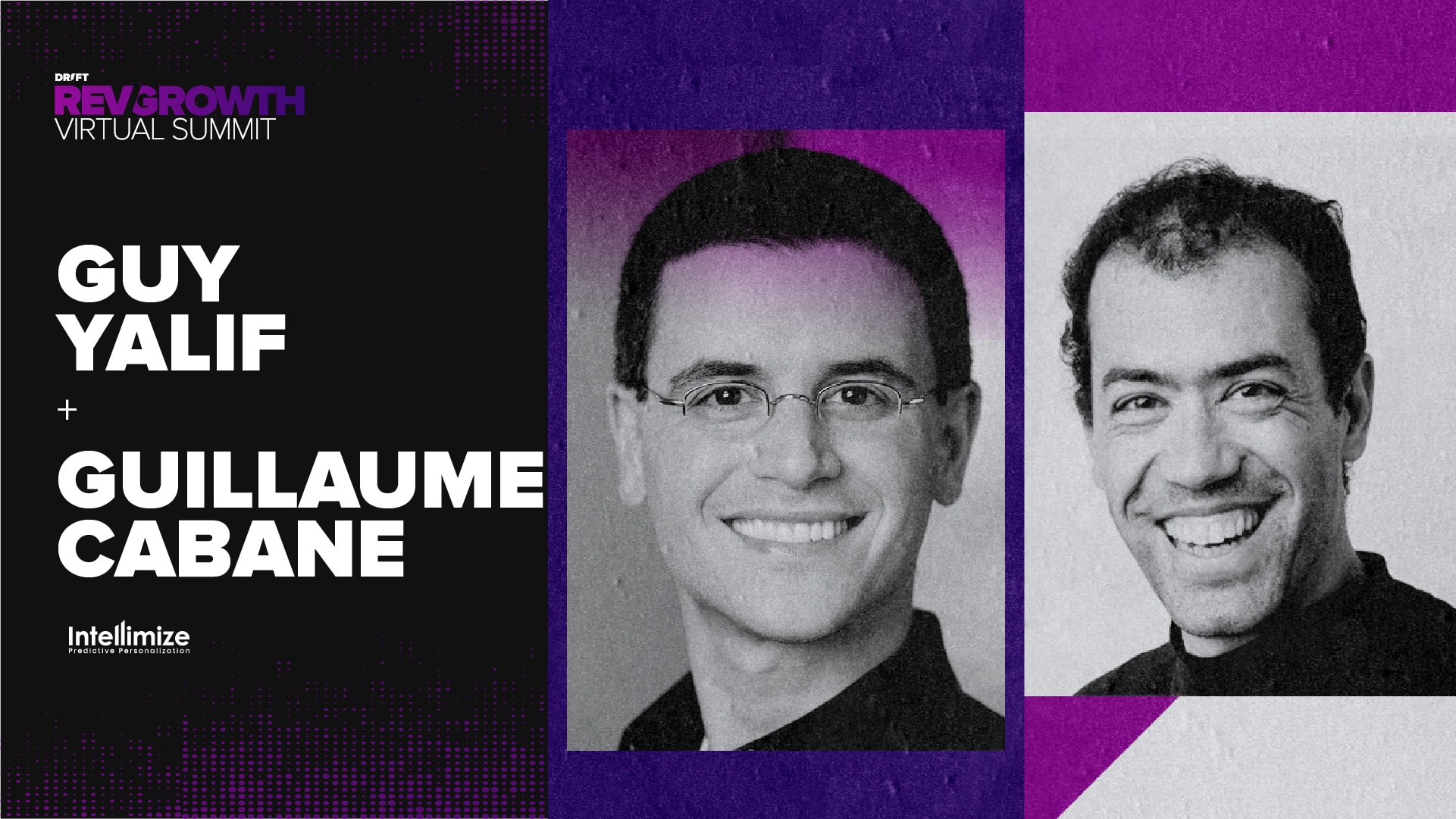
Intellimize’s Guy Yalif and Guillaume (aka G) Cabane are obsessed with data. No surprise since Intellimize provides predictive personalization for websites with the help of machine learning.
Since the coronavirus outbreak began, Guy and G have been busy digging into our changing behavior online. And, somewhat surprisingly, it’s not all bad news. Online sales for B2C are stable, if not increasing. A hypothesis? All the time we’re spending at home and online.
So what other data did Guy and G have to share?
Marketers are responding to COVID and the rapidly changing behaviors of their site visitors by doing more website testing – running 35% more tests in recent weeks.
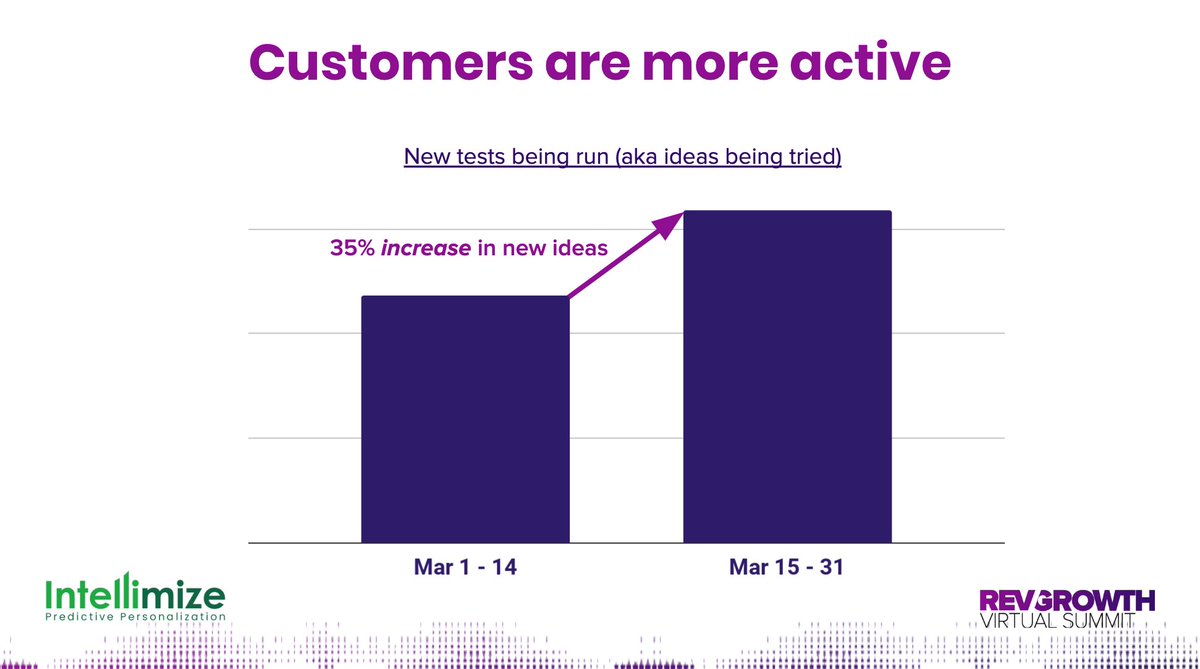
And what’s the impact of all that testing and personalization? Base websites, those that don’t have adapted messaging and content, are seeing conversion rates dip by 25%, but websites that are personalizing only have a 5% dip. Personalization is key!
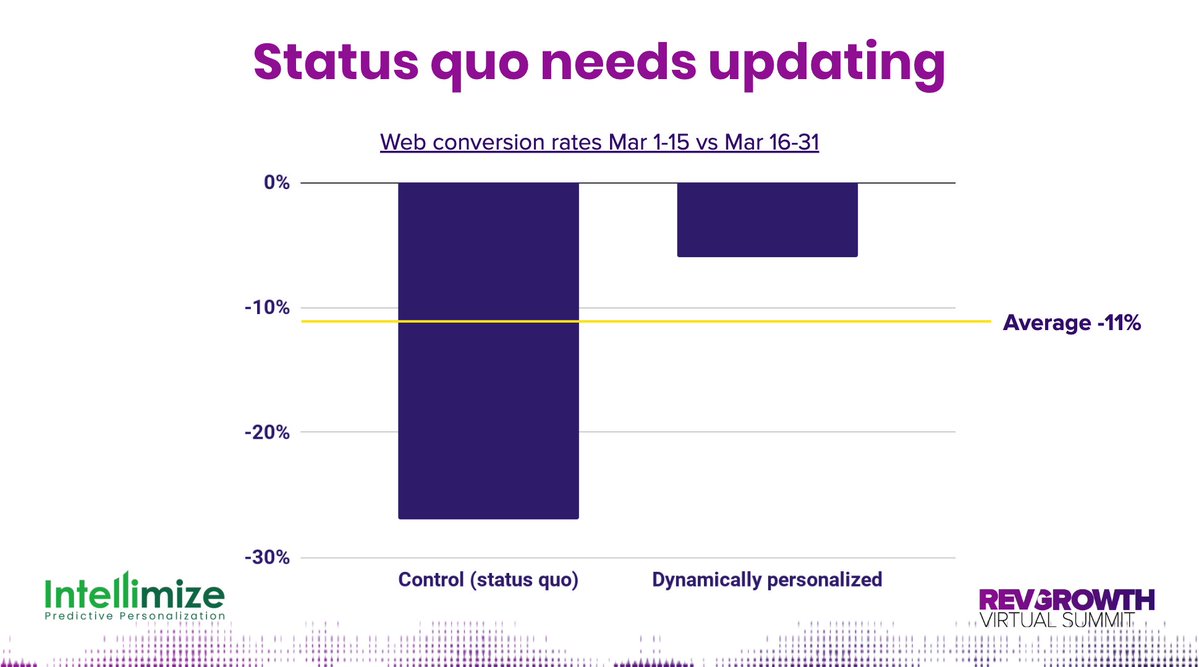
But the impact of COVID on eCommerce conversion rates is not uniform. Online-only businesses are seeing a lift of about 12%, while businesses with brick & mortar ties are down 30%.
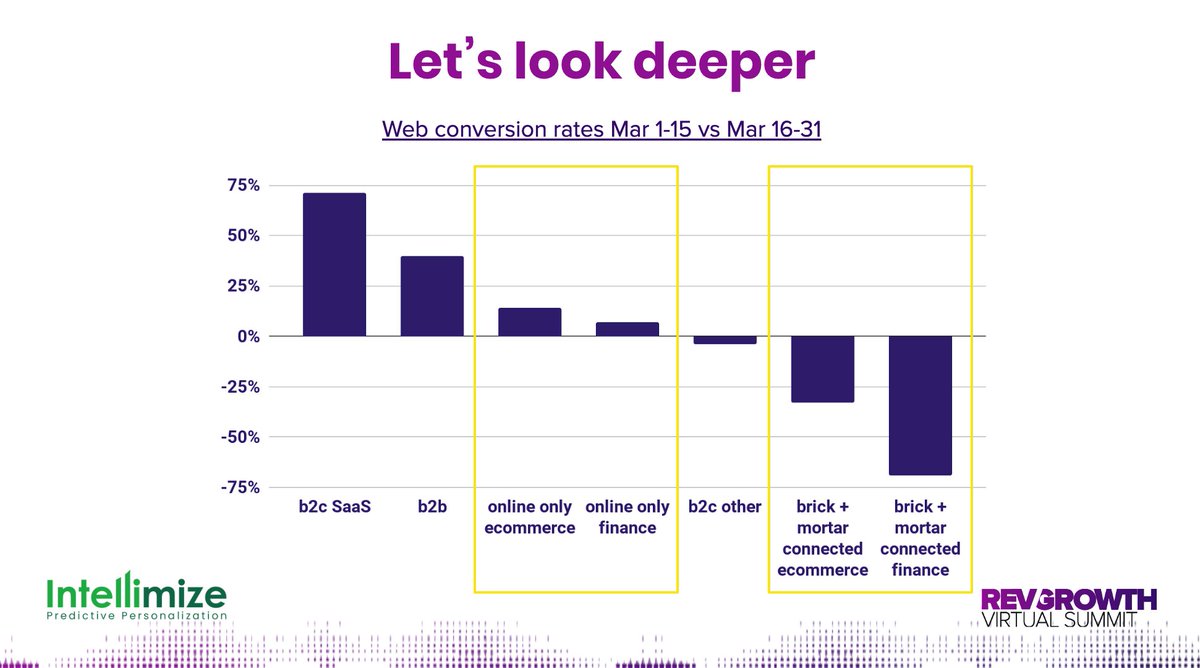
And the news is promising for B2B companies – conversion rates are up around 40%, while eCommerce conversion rates are down around 5%.
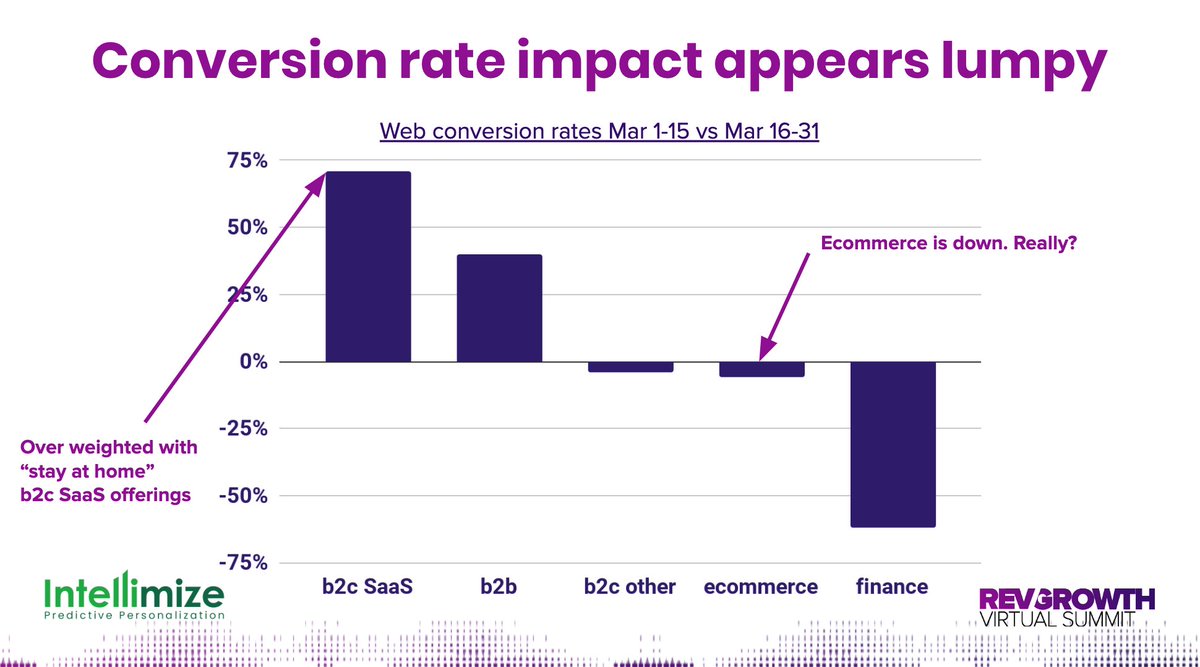
You can catch the full presentation with more data and insights from Guy and G here.




